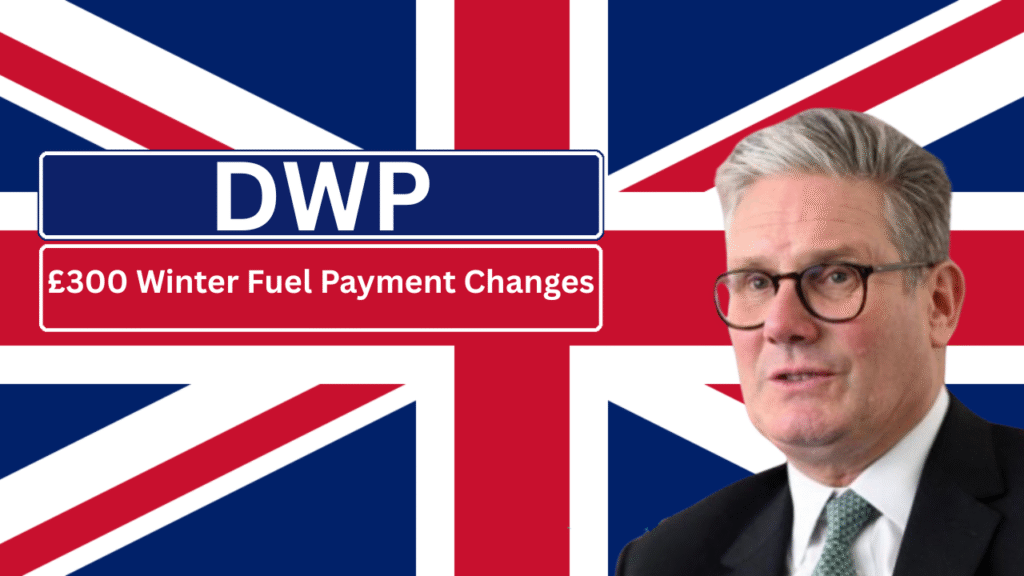A major overhaul to the Department for Work and Pensions’ (DWP) £300 Winter Fuel Payment is reportedly being considered after a wave of public backlash. The payment, which is designed to help pensioners with rising heating costs during the colder months, could soon be subject to significant changes amid claims that it is no longer fit for purpose in its current form.
The proposed review of the scheme comes at a time when energy prices remain volatile, inflation has taken a toll on household budgets, and questions continue to be raised about the fairness and efficiency of government support for the elderly.
Background: What Is the Winter Fuel Payment?
The Winter Fuel Payment is a tax-free annual payment provided by the DWP to help older people with the cost of heating their homes during winter. Depending on eligibility and circumstances, individuals can receive between £250 and £600. This includes an additional Pensioner Cost of Living Payment, introduced to help mitigate the financial pressures brought on by the rising cost of energy and essentials.
In winter 2023-24, the payment ranged from £250 to £600, with the higher amounts going to those aged 80 and over or individuals receiving certain qualifying benefits.
Why Is a Change Being Considered?
According to reports, the government is considering a shift in how the Winter Fuel Payment is allocated, following criticism that the payment is made universally to pensioners regardless of income. Critics argue that wealthier retirees who may not need financial help still receive the payment, while vulnerable households on lower incomes struggle to make ends meet.
Campaigners have called for the payment to be means-tested to better target those in genuine need, similar to how other cost of living support has been distributed. Others argue the payment should be increased or restructured to reflect the real costs of heating in today’s energy market.
A government spokesperson has confirmed that ministers are reviewing the current system to ensure it delivers value for money and targets support effectively, particularly as the government seeks to tighten public spending in future budgets.
Political and Public Reaction
The potential changes have prompted a strong reaction from both pensioners and charities working with older people. Age UK has warned that altering the scheme could leave millions of older adults at risk of fuel poverty.
Speaking to media outlets, a spokesperson from the charity said, “The Winter Fuel Payment is not just about extra cash — it is about peace of mind. For many older people on modest incomes, it’s the difference between keeping the heating on or turning it off during freezing weather.”
The organisation has urged the government to proceed with caution and ensure that any reform does not inadvertently cut off vital support to those who need it most.
On social media and through MPs’ constituency offices, many pensioners have voiced their concerns over the possibility of changes to the Winter Fuel Payment. A common sentiment among retirees is that they have contributed to the system for decades and now face being penalised in their later years.
Government Review and Future Plans
The DWP has not yet formally announced any concrete changes but has confirmed that options are being explored. The review forms part of a wider discussion on the future of welfare spending, particularly in light of growing national debt and calls for greater fiscal responsibility.
Insiders suggest that one idea under discussion is introducing an income threshold to determine eligibility. Another is restructuring the payment so that it functions more like a targeted energy support grant, focusing only on households below a certain income level or those in energy poverty.
There is also speculation that any changes will not be implemented until after the next General Election, to avoid alienating a key voting demographic.
Who Is Eligible Now?
Currently, those born before 25 September 1957 and who lived in the UK during the qualifying week (typically in late September) are eligible for the Winter Fuel Payment. Most eligible pensioners receive the payment automatically if they are already claiming the State Pension or another social security benefit.
The amount varies depending on age, living arrangements, and whether the claimant receives other benefits. Those over 80 years old typically receive the higher amounts.
For winter 2023-24, the government included an extra Cost of Living Pensioner Payment as part of the Winter Fuel Payment, a move introduced during the height of the energy crisis.
What Could the Changes Mean for Pensioners?
If the payment becomes means-tested, many better-off pensioners could lose automatic access to the support, freeing up funds to increase the amount paid to lower-income households. However, the risk is that this could create additional administrative burdens or deter some eligible pensioners from applying.
Any changes will also likely prompt debate over the principle of universal benefits – a longstanding aspect of the UK welfare system designed to simplify support and avoid stigmatization.
With millions of pensioners relying on the payment each winter, the government faces a difficult balancing act: reforming the system to improve fairness and efficiency while ensuring no one is left cold in their homes.
Conclusion
As the government reviews the future of Winter Fuel Payments, the pressure is mounting to protect the most vulnerable while making the best use of public funds. With energy costs still high and winter only months away, pensioners and campaigners alike will be watching closely to see what changes – if any – are implemented before the next cold season sets in.




